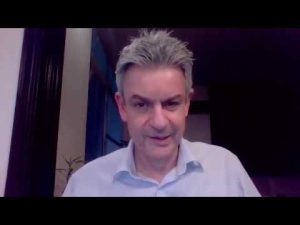How to Resurrect Yourself After Narcissistic Abuse: 9-fold Path of Healing
Introduction to Narcissistic Abuse and Recovery
- Narcissistic abuse leads to loss of identity, internal self-criticism, and a sense of alienation. Recovery involves a process to regain oneself through a structured approach. The prognosis for full recovery is good, although traumatic memories persist as a form of prolonged grief. [00:00]
The Nine Principles of Resurrection
- The recovery framework is divided into three groups: Body, Mind, and Functionality.
- Each group consists of three key principles, making a total of nine principles for holistic healing. [02:00]
Body Principles
- Attention
- Develop self-awareness of your body’s signals such as breathing, pulse, and muscle tension. Cultivate intimacy and friendship with your body using self-empathy. [04:00]
- Regulation
- Actively control bodily functions including breathing and pulse. Maintain self-regulation and mastery over your body through positive thinking and self-soothing techniques. [05:10]
- Protection
- Shield the body from harm and nurture it through proper care, nutrition, exercise, and medical help. Avoid self-punishment and self-destructive behavior. Recognize the mind-body relationship and treat the body with compassion. [06:30]
Mind Principles
- Authenticity
- Critically evaluate internal and external voices; accept only those that reflect your true self. Actively reject and shut out harmful voices that diminish or degrade you. Reinforce the notion that you are the expert on your own identity. [08:40]
- Positivity
- Embrace a balanced perspective that acknowledges both positive and negative aspects in yourself and others. Avoid black-and-white thinking and cynical attitudes. Positivity fosters healing and improves life’s tolerability. [16:20]
- Mindfulness
- Stay grounded in the present moment to avoid being trapped in harmful past regrets or unrealistic future fantasies. Use body awareness and regulation techniques to foster mindfulness and maintain psychological stability. [19:50]
Functional Principles (Systemic Functions)
- Vigilant Observer
- Maintain proactive, intelligent observation of yourself, others, and reality. Approach life as a research topic with curiosity and active participation to stay informed and aware. [22:55]
- Shielding Sensor
- Develop a protective filtering mechanism to reject internal and external harmful inputs, including critical or abusive voices. This acts like a firewall preserving mental and emotional wellbeing. [24:30]
- Reality Sentinel
- Constantly monitor and test reality against internal perceptions to avoid drifting into fantasy or distorted thinking. Rely on objective feedback from trusted sources initially, then cultivate self-trust in reality testing. [26:15]
Conclusion and Final Thoughts
- The nine principles—three for the body, three for the mind, and three systemic functions—constitute a comprehensive path to healing from narcissistic abuse.
- Sam Vaknin encourages the development and further elaboration of this framework into courses or books for wider benefit. [29:50]
This summary captures key concepts and timestamps for reference from the full transcript.






